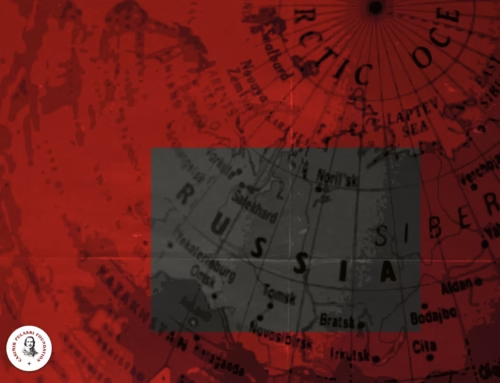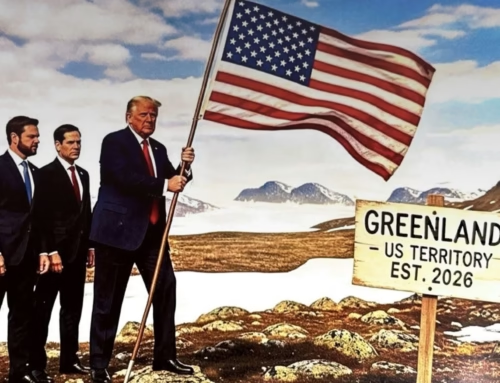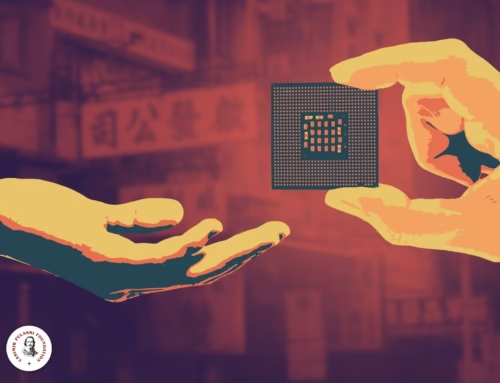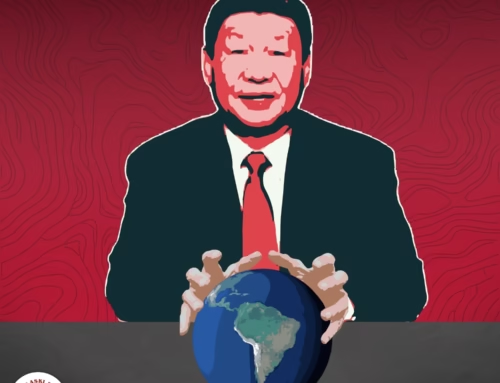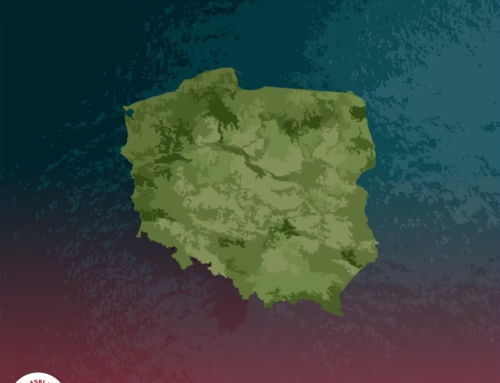08.03_總統與美國聯邦眾議院議長裴洛西媒體互動會_(52259967861)
Autor foto: Domena publiczna

Taiwan one year after Nancy Pelosi’s visit – deteriorating situation in the Taiwan Strait
25 lipca, 2023


08.03_總統與美國聯邦眾議院議長裴洛西媒體互動會_(52259967861)
Autor foto: Domena publiczna
Taiwan one year after Nancy Pelosi’s visit – deteriorating situation in the Taiwan Strait
Autor: Robert Czulda
Opublikowano: 25 lipca, 2023
Almost a year ago, U.S. House of Representatives Speaker Nancy Pelosi’s visit to Taiwan (Republic of China) triggered a strong reaction from the communist regime in Beijing. Since then, the geostrategic situation in the Taiwan Strait has deteriorated, which is a result of increasingly hostile and provocative actions from the People’s Republic of China. The upcoming presidential elections in Taiwan may be of crucial importance.
Nancy Pelosi’s visit to Taiwan in early August 2022 was, to some extent, a significant diplomatic success. It confirmed Taiwan’s de facto independence and clearly signaled close relations with the United States, who demonstrated its position of a sole superpower. This visit was a result of Taiwan’s firm stance towards China in recent years. Such assertive approach was influenced, among other factors, by a lesson learnt from events in Hong Kong, where local autonomy – contrary to previous agreements – was violated by the Chinese Communist Party (CCP) through the introduction of a law increasing Beijing’s control over the autonomous region. When protesters were arrested, and independent media was banned, many Taiwanese people realized that they cannot trust Beijing.
After Pelosi’s visit, Beijing responded both politically and militarily. In addition to verbal protests, China suspended military dialogues with the United States and imposed sanctions on Pelosi. Chinese media showed sudden military movements near Taiwan, including a deployment of amphibious ZTD-05 tanks on beaches. Several days of live-fire exercises were conducted around the island, with a series of ballistic missile launches, one of which flew over Taiwan. Now, a year later, it is clear that these were not the only actions taken by Beijing at that time.
Changes in the Taiwan Strait
Taiwan authorities emphasize that they will not be intimidated by China and will continue to pursue their own policies. A clear demonstration of this stance was the meeting in April 2023 in California between President Tsai and US House of Representatives Speaker Kevin McCarthy, along with a bipartisan group of congressional leaders. Strong support from the United States remains crucial. In August 2022, Taiwan announced a significant increase in military spending,[i] and in December 2022, Taipei reinstated a mandatory one-year military draft.[ii] New weapons are expected to come from the United States, the sole exporter of arms to Taiwan.
Taiwan’s fundamental goal remains to maintain a delicate status quo. Any changes in this regard are perceived by the authorities as too risky. The United States shares a similar view and also seeks to avoid actions that would be seen by Beijing as crossing a thin and invisible line. This is evident in the American reaction to the statement made by Lai Ching-te, who is now Taiwan’s Vice-President and an official candidate of the ruling DPP in the upcoming presidential elections. Lai, considered more hawkish than current President Tsai Ing-wen, stated that “when Taiwan’s president can enter the White House, the political goal that we’re pursuing will have been achieved”.[iii] These words sparked strong dissatisfaction from both Beijing and the United States, with the latter reportedly asking Lai for an explanation.
Nevertheless, over the past year, the situation around Taiwan has worsened. China no longer engages in official dialogue with Taiwan and does not respond to communications from Taipei.[iv] This is not only a result of pressure from Beijing but also a belief within the People’s Republic of China (PRC) that any talks with the current authorities in Taipei would legitimize their position, which China does not wish, as they do not want the Democratic Progressive Party (DPP) to remain in power. The opposition, officially endorsed by Terry Gou, the founder of Foxconn, claims that the DPP has only escalated tensions.[v]
Since Pelosi’s visit, a number of incidents has been on the rise. This phenomenon includes not only an increase in violations but also a qualitative change in their nature. Firstly, the Chinese side increasingly crosses the median line, which has served as an unofficial border in the Taiwan Strait. Secondly, since last year, they have increased the use of drones. While there have been no direct and immediate hostile kinetic actions, these intrusions carry hostile intentions. Taiwan also observes a rise in cyber-attacks, mainly DDoS attacks.[vi]
According to official statistics, in 2020, Taiwan’s air defense identification zone (ADIZ) was violated 380 times by China’s jets. In 2021, the number of incidents increased to 960, and in 2022, it further rose to 1727 violations.[vii] The highest number of violations occurred in August 2022, after Pelosi’s visit. Moreover, the communist regime also sent 71 drones, all of which were deployed after her trip to Taiwan. 2023 is expected to set a new record. In a single morning, on July 22nd, 37 of China’s aircraft and 7 vessels were detected around Taiwan. Among them, 22 (including 8 x J-10, 6 x J-16, 2 x H-6, Y-9 CC, WZ-7 UAV RECCE, KJ-500 AEW&C, TB-001 UCAV RECCE, Z-9 ASW, Y-8 ASW) crossed the median line of the Taiwan Strait or entered Taiwan’s southwest and east ADIZ.[viii]
A purpose of these actions is to exhaust Taiwan’s relatively small military, forcing them to spend time reacting to Chinese provocations instead of focusing on other activities. This fatigues the crews, including aircraft pilots. Furthermore, such actions create a new normal – Chinese military presence close to Taiwan, which was once seen as exceptional, has now become a daily occurrence.
What’s next?
Situation around Taiwan will largely depend on the upcoming presidential elections (although tensions in the Taiwan Strait are primarily determined by China). The elections are scheduled to be held in January 2024. The current President, Tsai Ing-wen, is ineligible to run for a third term. She represents the Democratic Progressive Party (DPP), which has a more assertive foreign policy stance compared to the opposition Kuomintang (KMT). Tsai’s predecessor, President Ma Ying-jeou (2008 – 2016), belonged to the KMT. During his tenure, Taiwan pursued a policy that brought the island closer to China. Economic and cultural cooperation was strengthened, and the number of tourists from both countries increased. Taiwanese companies actively started investing in China.
DPP has been pursuing broader cooperation with partners around the world, which includes both Europe and the Indo-Pacific region. The latter is being implemented through the so-called New Southbound Policy, a flagship initiative of President Tsai since 2016. Its official goal is to “reorient Taiwan’s foreign relations through steadfast diplomacy”.[ix] DPP’s candidate to replace Tsai is the current Vice-President, Lai Ching-te, who has advocated for a reduction in trade ties with China.[x] This is because such ties are perceived as a source of vulnerabilities that the PRC could exploit to exert more pressure on Taiwan.
On the other hand, the KMT, often viewed as more friendly towards Beijing and less assertive, aims to rebuild its ties with the PRC. The KMT’s official candidate is Hou Yu-ih, currently serving as the mayor of New Taipei. Additionally, there is a third candidate. In 2019, the Taiwan People Party (TPP) was established, and its candidate is its chairman Ko Wen-je, who served as the mayor of Taipei until December 2022. Regarding foreign policy, the TPP strikes a balance between the KMT and the DPP. A DPP victory would be the worst-case scenario for the PRC, as it would signify further distancing of Taiwan from attempts to normalize relations with Beijing.
Author: Robert Czulda, Resident Fellow Casimir Pulaski Foundation
[i] „Taiwan proposes large rise in defense spending amid escalating China tensions”, CNBC, August 25, 2022, https://www.cnbc.com/2022/08/25/taiwan-proposes-large-rise-in-defense-spending-amid-escalating-china-tensions.html.
[ii] Jake Chung, „Tsai reinstates one-year conscription”, Taipei Times, December 28, 2022, https://www.taipeitimes.com/News/front/archives/2022/12/28/2003791545.
[iii] Keoni Everington, “Ko says Taiwan should be 'recognized by world’ despite China stance”, Taiwan News, July 13, 2023, https://www.taiwannews.com.tw/en/news/4943207.
[iv] Private talks held in Taipei in July 2023.
[v] Terry Gou, „Taiwan abandoning the one-China framework aggravates the risk of war”, The Washington Post, July 17, 2023, www.washingtonpost.com/opinions/2023/07/17/taiwan-china-agreements-safety.
[vi] Private talks held in Taipei in July 2023.
[vii] Michael Mazza, “Three Scenarios for Ukraine’s Future and the Implication for Taiwan”, Global Taiwan Brief, Volume 8, Issue 13, p. 14.
[viii] 國防部 Ministry of National Defense, R.O.C., July 22, 2023, https://twitter.com/MoNDefense/status/1682559760846163968.
[ix] “The New Southbound Policy: Strategizing Taiwan’s Warm Power Practice”, TAEF Quarterly, October 2022, p. 6.
[x] Terry Gou, „Taiwan abandoning the one-China framework aggravates the risk of war”, The Washington Post, July 17, 2023, www.washingtonpost.com/opinions/2023/07/17/taiwan-china-agreements-safety.


